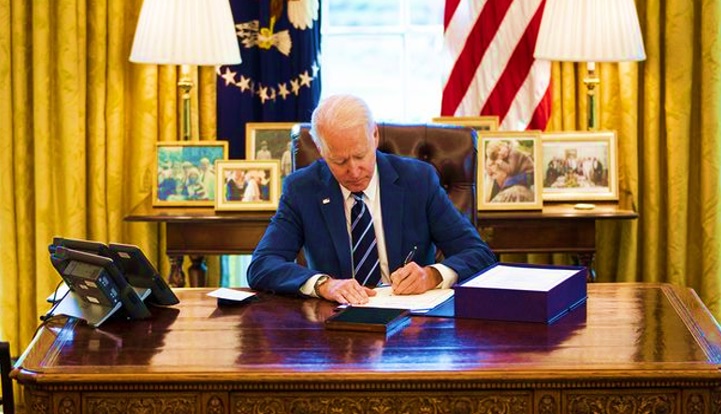
What Employers Need to Know About the American Rescue Plan Act of 2021
By Josh Goldberg
Barran Liebman LLP
Oregon law firm,
Today, President Biden signed the American Rescue Plan Act of 2021 (“ARPA”) into law. This comprehensive stimulus package contains a number of provisions aimed at supporting the supply chain of vaccinations and immunization funding and alleviating the harsh effects of the pandemic. While some key employment provisions were removed from the final bill (such as the minimum wage hike and elimination of the tip credit), here are the key provisions that are relevant to employers.
FFCRA Leave: In the ARPA, Congress has chosen not to revive the expired mandatory FFCRA leave requirements. Although new mandatory leave requirements will likely be subject to further Congressional debate, for now, the ARPA extends the tax credit for qualified wages employers voluntarily provide for up to ten days of leave for qualifying absences. These tax benefits are cumulative and allow employers who have previously taken the tax credit to use it again for wages paid for leave taken on or after April 1, 2021.
In addition to paid leave for absences originally covered by FFCRA, this tax credit will also be available for sick leave wages paid to an employee (1) seeking or waiting for the results of a COVID-19 diagnosis because of exposure to COVID-19 or an employer requested COVID-19 test, (2) receiving a vaccination for COVID-19, and (3) recovering from a medically diagnosed injury or illness resulting from vaccination for COVID-19. The daily $200 cap on qualified wages remains the same, but the overall cap on tax credits employers can claim for an individual has increased from $10,000 to $12,000.
Employers should be wary that policies that vary from FFCRA and FMLA requirements could result in the loss of the tax credit. Additionally, ARPA has adopted non-discrimination rules, so that if the employer, in determining availability of the paid leave, discriminates in favor of highly compensated employees, full-time employees, or employees on the basis of tenure, the employer may lose the tax credit.
These new provisions will be in effect starting April 1, 2021, and sunset on September 30, 2021.
Paycheck Protection Program: Congress has appropriated a relatively modest amount of $7.25 billion for the Paycheck Protection Program, and has decided not to extend the March 31, 2021, deadline to apply for assistance. In lieu of more robust PPP funding, the ARPA has substantially expanded other business assistance programs. For example, the ARPA appropriates an additional $15 billion for the Small Business Administration to assist struggling businesses, more than $25 billion specifically for the restaurant industry, and $1.25 billion for the Shuttered Venue Operators Grant.
Employee Retention Tax Credit: The Employee Retention Tax Credit that provides a refundable tax credit for up to 70% of qualified wages is extended from July 1, 2021, to December 31, 2021. Additionally, the ARPA makes additional changes effective June 30, 2021, by allowing startup businesses with gross receipts of up to $1 million to claim a tax credit limited to $50,000 each quarter. Severely financially distressed employers can claim a larger tax credit and small employers may receive an advance of their tax credit.
Unemployment Insurance: The ARPA extends the “add-on” $300 weekly federal unemployment funding and other unemployment insurance benefits set to expire on March 14, 2021. These benefits will now expire on September 6, 2021. Governmental and non-profit entities (including many higher education institutions) will also receive a more favorable reimbursement rate for unemployment insurance benefits. Between March 31, 2021, and September 6, 2021, they will receive reimbursements for 75% rather than 50% of the covered unemployment insurance benefits.
A forthcoming E-Alert will separately address COBRA assistance subsidies in greater detail, as well as other changes to benefits plans. Barran Liebman will also keep you abreast of key guidance as it is released.
For questions relating to the American Rescue Plan Act of 2021 or your policies related to COVID-19, contact Josh Goldberg at 503-276-2107 or via email at [email protected].
Disclaimer: Articles featured on Oregon Report are the creation, responsibility and opinion of the authoring individual or organization which is featured at the top of every article.

